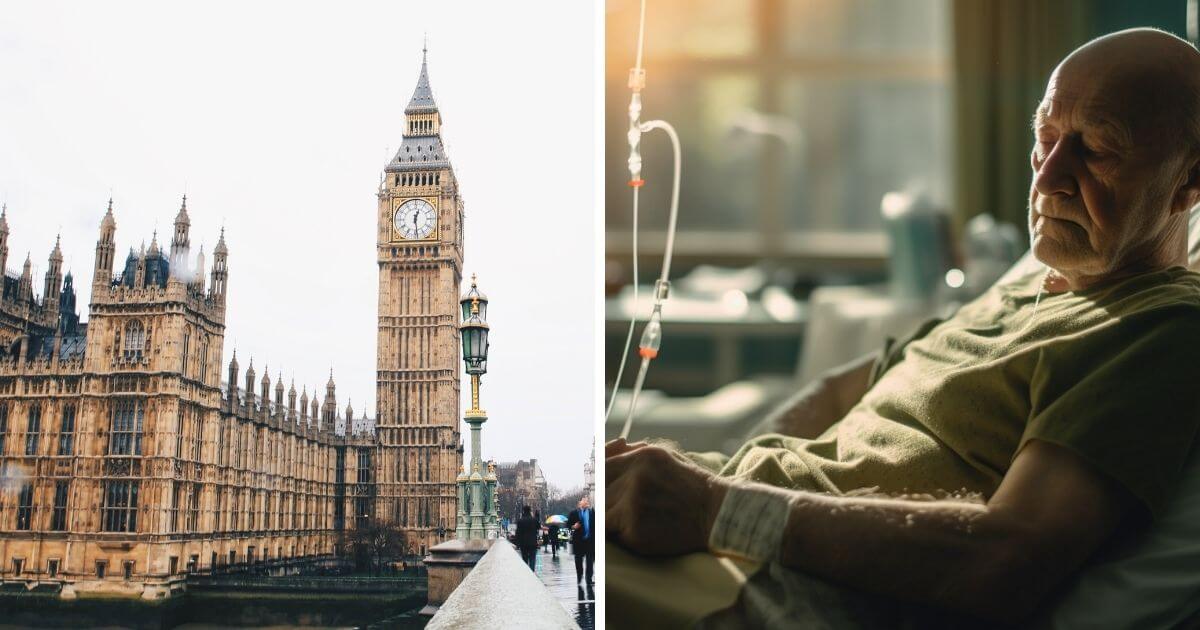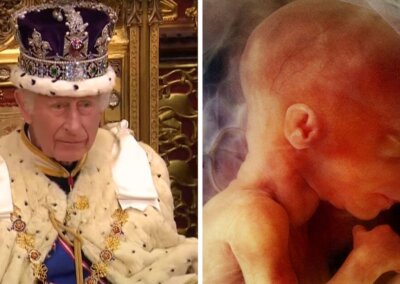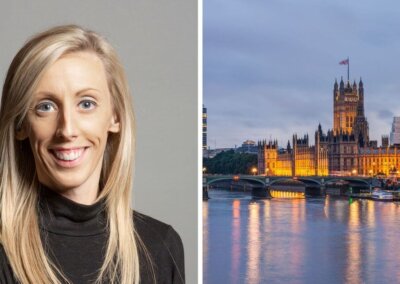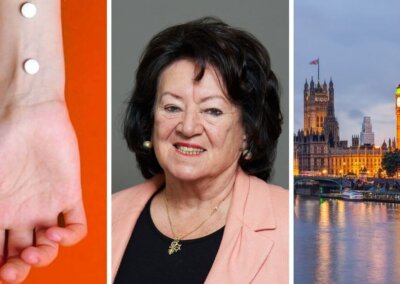The “radical” and “rapidly expanding” euthanasia practices of Canada and the Netherlands were under scrutiny on Tuesday morning during the third oral evidence session of the UK Health and Social Care Select Committee’s (HSCSC) inquiry into assisted suicide. MPs heard testimony from six experts concerning euthanasia laws in Canada, the Netherlands and Belgium, jurisdictions where euthanasia is permitted for those who are not terminally ill.
Canada a “warning sign”
Prof Trudo Lemmens of the Faculty of Law at the University of Toronto explained how Medical Assistance in Dying (MAID) in Canada is “accessible largely on demand in very broad circumstances” and is “the most rapidly expanding system in the world”. Speaking in follow up to Prof Lemmens’ comments, Steve Brine MP, the Committee’s Chair, put it to Scott Kim, professor of psychiatry at the University of Michigan, that Canada is “a warning sign to the rest of the world”. Agreeing with the assertion, Dr Kim labelled MAID in Canada as the “most radically medicalised system of providing assisted dying”, describing “the combination of very open eligibility that is implemented through a well-networked framework of medicalisation” as “sobering”.
Dr Kim further described the evolution of Canada’s MAID programme as “a very dangerous situation in my view” since, unlike in other jurisdictions, seeking an assisted death “does not have to be a last resort option in Canada”. Even when Canada’s MAID laws were limited to those with a terminal illness (the criteria some advocates of assisted suicide in the UK seek), Dr Kim warned that “the reasonably foreseeable death criterion has always been interpreted so broadly that it really includes many cases that many people would not see as terminal illness”.
In March 2021, the ‘reasonable foreseeability’ of death criterion was removed from MAID laws. As a result, Dr Kim remarked that “it’s indisputable that a person with a chronic illness … would [qualify] for MAID” now.
Mental illness
However, Canada’s MAID provisions are soon likely to be expanded further. From March 2024, persons whose “sole underlying medical condition is a mental illness” are set to become eligible for MAID. This extension of MAID had previously been due to come into effect this year but has been delayed by a year. Criticising the lack of protections offered in the proposals, Dr Kim explained “I believe one of the reasons why … mental illness MAID has been delayed is because the committee that was charged with coming up with safeguards published a report which really didn’t have any safeguards”. Addressing claims that MAID for people with mental illness will be uncommon, Dr Kim warned “I think to say that [MAID for mental illness] is going to be rare is not a factual statement”.
Prof Lemmens also disputed the assertion that Canada’s government was forced by a ruling of its Supreme Court to expand MAID to people with mental illness, pointing out that the “Supreme Court … never ruled on circumstances related to mental illness and it explicitly stated in its reasons that it was not looking at cases … of mental illness”.
Members of the HSCSC were clearly concerned by the evidence presented from Canada. James Morris MP asked “Doesn’t this just lead potentially to a slippery slope where we’re opening up assisted dying to a whole range of potential mental health conditions … an incurable mental health condition is itself a pretty contested definition … the interpretation and the definitions here are pretty loose and isn’t that quite dangerous?”
‘Physician shopping’
Although Canada allows medics to refuse to participate in MAID, Prof Lemmens warned of “a duty of effective referral” that “risk[s] having a couple of very, let’s say flexible, physicians … who may attract a large majority of cases. This is a phenomenon of ‘physician shopping’.”
Prof Lemmens, questioning the quality of palliative care and disability support provision in his country, later told the inquiry how it is “often easier … to have access to MAID than to have access to… very important disability support”.
Dr Kim further outlined the dangers of the Canadian system for vulnerable people arguing that in introducing a system like MAID, “you create a new set of vulnerabilities” relating to “[those] we traditionally think as a society we should connect with, engage with and support”. The law as it stands is such that he warned “I don’t believe there are safeguards that can fix the problem”.
In closing, Dr Kim explained that despite the name ‘Medical Assistance In Dying’, “less than 1 in 1000” MAID deaths in Canada were cases of assisted suicide, with almost all being euthanasia at the hands of a physician. He summarised Canadian practice as “a very aggressive medical delivery system of euthanasia”.
The Netherlands and Belgium
Earlier in the morning, the HSCSC had heard evidence from experts concerning euthanasia practice in the Netherlands and Belgium.
In response to attempts by Paul Blomfield MP to make a parallel between “palliative sedation” in end-of-life care, such as that practised in the UK, and euthanasia, Irene Tuffrey-Wijne,
Professor of Intellectual Disability and Palliative Care at Kingston University, explained that “the intention of palliative care is to … relieve suffering; the intention is not to bring about death”, which is “a fundamental difference in principle” from euthanasia.
Perhaps the most shocking moment of the hearing came when Prof Tuffrey-Wijne confirmed to the Committee that tinnitus is a permitted reason for assisted suicide in the Netherlands and had been approved as a basis for euthanasia.
Concerns over people with disabilities
Tinnitus was not the only area of concern with regard to Dutch practice that was highlighted to the inquiry. Prof Tuffrey-Wijne, speaking about her area of expertise, explained in answer to a question from Chris Green MP that “people with disabilities in autism find it more difficult to really weigh up information and to consider alternatives”. She explained how such difficulties had led vulnerable people to choose euthanasia.
Prof Tuffrey-Wijne warned more broadly about how societal attitudes meant people with disabilities were particularly vulnerable to euthanasia provisions. She noted how “there is an underlying unconscious bias, I think, from society that disability and dependence is difficult to live with … the implicit message that maybe death is preferable to life in your situation.”
Child Euthanasia
In the Netherlands, there were 8,720 cases of euthanasia in 2022, accounting for 5.1% of all deaths in the country. And yet, the government has recently announced plans to follow Belgium in permitting euthanasia for children of all ages.
At present, children over the age of 12 and infants up to one year old are eligible for euthanasia in the Netherlands. One of the most remarkable moments of Tuesday’s hearing was when Caroline Johnson MP, herself a paediatrician, asked about the ‘Groningen Protocol’, which regulates the euthanasia of infants in the country. In reply, Professor Rutger Jan van der Gaag, former President of the Royal Dutch Medical Association, incorrectly claimed the protocol only relates to the withdrawal of ventilation from babies who would otherwise die, saying “there’s no active termination.” In reality, the Protocol allows for non-terminally ill babies with conditions such as spina bifida to be euthanised.
Eduard Verhagen, the Protocol’s author, recently co-published a paper explaining “the goal of the Protocol is to allow parents and doctors to end the life of infants in cases where the infant is suffering unbearably with no hope for improvement, but is neither actively dying nor dependent on medical technology (e.g. a ventilator) for life. Under the Protocol, physicians may administer substances to the infant to rapidly and painlessly end the infant’s life when specific criteria are met”. Many of the assumptions behind the Protocol have been widely criticised.
“We must continue to resist pressure to loosen the law”
Right To Life UK spokesperson Catherine Robinson said “the radical and expanding nature of euthanasia practices in Canada and the Netherlands is indeed a ‘warning to the world’. Both jurisdictions remind us that safeguards are soon eroded when euthanasia is permitted and people with mental illness, intellectual disabilities and children become particularly vulnerable. It is good that the HSCSC was able to hear evidence from these countries and we must continue to resist pressure to loosen the law in the UK”.












